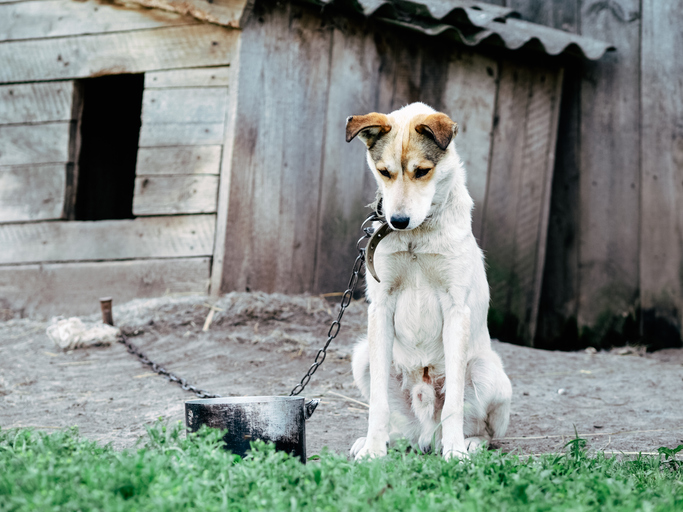Animal cruelty is an abhorrent reality that permeates societies across the globe. In Canada, as awareness of animal rights increases, so does the demand for compassionate advocates to champion their cause. Becoming an animal cruelty investigator is one avenue through which dedicated individuals can make a substantive impact. This article explores the provincial requirements to pursue this vital role within the Canadian legal framework. Understanding such requirements can be the first step in transforming a passion for animal welfare into a rewarding career.
Animal cruelty investigators play an indispensable role in monitoring, preventing, and addressing acts of cruelty against animals. The responsibilities of these investigators extend beyond mere observation and often include gathering evidence, interviewing witnesses, and, in some cases, testifying in court. With ever-evolving regulations surrounding animal rights, investigators must remain knowledgeable about legal statutes and ethical practices. Thus, embarking on this career pathway requires a balanced amalgamation of education, training, and inherent compassion.
Education forms the bedrock for any aspiring animal cruelty investigator. Across Canada, post-secondary education in disciplines such as criminal justice, animal science, or environmental law can provide a solid foundation. Though not strictly mandated, a degree in these areas equips candidates with a nuanced understanding of legal principles and animal welfare. For instance, courses in criminology elucidate the motives behind criminal behavior, an insight that is invaluable for an investigator. Conversely, animal science imparts crucial knowledge regarding animal behavior, physiology, and husbandry. Such interdisciplinary expertise fosters a keen perceptiveness that can significantly enhance investigative endeavors.
In addition to formal education, practical experience through internships or volunteer work is imperative. Many organizations dedicated to animal welfare encourage prospective applicants to engage in volunteer roles. While performing tasks such as rescue operations or community outreach, candidates develop vital skills and insight into the day-to-day operations of animal welfare organizations. By working closely with animals, individuals can cultivate empathy, while simultaneously sharpening their investigative aptitude through firsthand encounters with cruelty cases. It is often said that experience is the best teacher; this adage rings particularly true in fields where human compassion and systemic understanding intertwine.
The path to becoming an animal cruelty investigator varies across provinces, reflecting the localized legal landscapes that govern animal welfare. For instance, Ontario’s Animal Care and Control Act articulates specific protocols and regulations that investigators must adhere to. Here, potential investigators must familiarize themselves with the act’s provisions, which clarify the powers granted to animal control officers and the processes through which investigations are conducted. Engaging deeply with this legislation enables individuals to act in alignment with the law, providing robust and grounded investigations.
Moving to Quebec, the situation remains equally complex, as the province employs its own set of regulations under the Animal Welfare and Protection Act. Candidates seeking to investigate animal cruelty in Quebec must not only understand the legal ramifications of their decisions but also navigate the complexities of bilingual documentation and cultural nuances in animal care. This shared understanding among communities will ultimately lead to more effective investigations and improved outcomes for animals.
British Columbia presents yet another paradigm, governed by the Prevention of Cruelty to Animals Act. Here, animal cruelty investigators are often tasked with liaising with numerous stakeholders, including law enforcement and animal welfare organizations. The significance of collaboration cannot be understated, as investigators frequently gather intelligence from multiple sources. Being adept at communication, negotiation, and collaboration can significantly enhance an investigator’s efficacy in navigating the often fraught landscape of animal rights advocacy.
An additional facet of the pathway to becoming an animal cruelty investigator is the acquisition of specialized training. Many organizations offer certification programs that delve deeply into investigative techniques, legal standards, and emotional intelligence competencies. Training in conflict resolution and trauma-informed care can amplify the efficacy of investigators, allowing them to navigate sensitive situations with grace and tact. It is imperative that investigators be equipped not only with the ability to collect evidence but also with the competence to empathize with both animals and individuals involved in cases of cruelty.
Networking plays a pivotal role in the career trajectory of aspiring animal cruelty investigators. Establishing relationships with professionals within animal welfare and law enforcement can prove advantageous. Attending workshops, conferences, and community events creates platforms for connecting with likeminded individuals and mentors. These alliances can offer invaluable insights into the intricate workings of investigations and the integrated legal system.
Nonetheless, the role comes with its fair share of challenges. Investigators often encounter distressing situations involving suffering animals, which can take an emotional toll. As such, developing mental resilience is essential. Engaging in self-care practices, seeking peer support, and pursuing therapeutic interventions can buffer against the psychological impact of the role. Strengthening one’s emotional fortitude is not merely beneficial; it is vital for sustaining long-term engagement in this demanding field.
In conclusion, the journey to becoming an animal cruelty investigator in Canada is replete with complexity yet abundant in opportunities to make a tangible difference. A robust educational foundation, practical experience, nuanced understanding of provincial laws, specialized training, and an extensive network can collectively pave the way to a fulfilling career in this rewarding domain. As societal values shift towards a more compassionate and protective stance towards animals, the role of animal cruelty investigators becomes increasingly indispensable. The question remains: are you ready to advocate for those who cannot speak for themselves?








